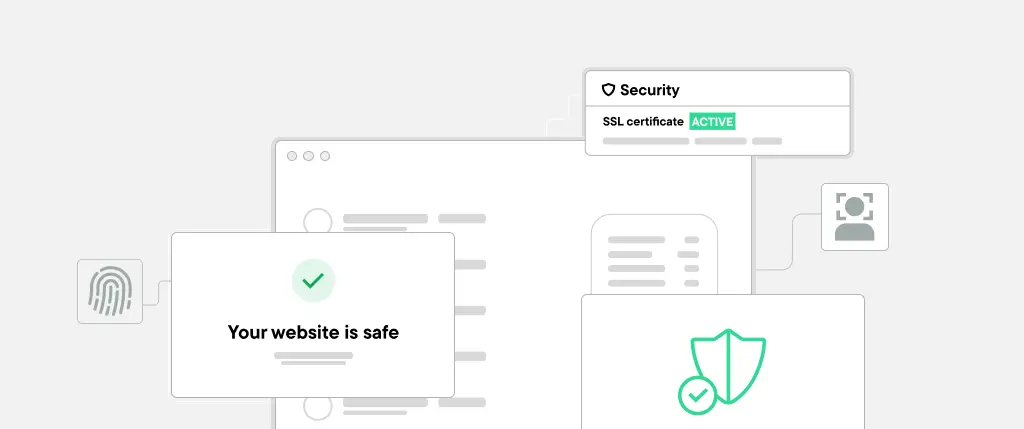The General Data Protection Regulation (GDPR) is a critical piece of legislation for website owners operating within or interacting with the European Union. If your WordPress website collects, stores, or processes personal data from EU residents, you must ensure your site is GDPR-compliant. One often-overlooked aspect of GDPR compliance is your web hosting provider. While website owners focus on plugins and forms, the server infrastructure and hosting environment play an equally important role in securing and protecting user data.
In this post, we’ll explore the role of web hosting in GDPR compliance for WordPress websites, how to select a hosting provider that meets GDPR requirements, and steps you can take to ensure your website is fully compliant.
What is GDPR and Why Does it Matter for WordPress Websites?
The General Data Protection Regulation (GDPR), enacted in May 2018, is a regulation by the European Union aimed at protecting the personal data of EU citizens. It applies to any website that collects or processes data from EU residents, regardless of the website’s location. For WordPress website owners, this means being aware of how user data is collected, stored, and used.
GDPR imposes strict guidelines on how businesses handle personal data, and non-compliance can result in heavy fines. Some key principles include:
- Data Minimization: Only collect data that is necessary for the purpose you intend.
- Transparency: Inform users about how their data will be used and processed.
- Security: Implement robust measures to protect data from unauthorized access.
- User Rights: Allow users to access, correct, and delete their personal data.
For WordPress users, this means configuring both your website and hosting environment to ensure that all data handling meets these requirements.
Key GDPR Requirements for Website Owners
As a WordPress website owner, ensuring compliance with GDPR involves meeting several core requirements:
- Data Processing Agreement (DPA): If your web host stores or processes your users’ data, you must have a DPA in place with them. This agreement outlines how the hosting provider handles data and ensures that they follow GDPR-compliant practices.
- User Consent: You must obtain explicit consent from users before collecting their personal data. For WordPress sites, this often involves installing a cookie consent plugin to inform users about the use of cookies and tracking technologies.
- Data Protection by Design: WordPress websites must implement security features that protect user data. This includes using SSL certificates, securing login pages, and ensuring that backups are encrypted.
- User Rights: Under GDPR, users can request access to their data, have it corrected, or even have it deleted. Ensure that your website provides these options through appropriate WordPress plugins or custom-built functionality.
- Breach Notification: If there is a data breach, GDPR mandates that you notify affected users within 72 hours. Make sure your website and hosting service have procedures in place for breach detection and communication.
How Web Hosting Plays a Role in GDPR Compliance
Your web hosting environment is foundational to GDPR compliance, especially when it comes to data storage, security, and transfer. Here’s how your web host can impact your GDPR compliance:
- Data Storage and Security: GDPR requires that personal data be securely stored. Your hosting provider should offer robust data encryption, both in transit and at rest, to ensure that user information is protected from unauthorized access.
- Backup Solutions: Regular backups are crucial for data recovery in the event of a breach or loss. Ensure your host provides encrypted backup options, and make sure you can easily restore data to remain compliant.
- Data Location: GDPR mandates that data not be transferred outside the EU unless certain conditions are met. Choosing a hosting provider with data centers in EU jurisdictions or certified to handle EU data is crucial for ensuring compliance. Some providers also offer multi-region data storage options to meet local regulatory requirements.
- Access Control and Auditing: Your hosting provider should implement strong access control measures. This includes logging who accesses your data and maintaining audit trails for accountability in case of a security breach.
The Importance of Server Location for GDPR
One of the key aspects of GDPR compliance is ensuring that personal data is stored within the EU or in countries with equivalent data protection laws. This is particularly important if your website collects or processes data from EU residents.
Choosing a hosting provider with EU-based servers is an easy way to stay compliant with GDPR. However, if your hosting provider uses servers outside the EU, they must comply with the EU-U.S. Privacy Shield Framework or have other mechanisms, such as Standard Contractual Clauses (SCCs), in place to ensure data protection.
Be sure to confirm with your hosting provider where your data will be physically stored and processed to avoid GDPR violations.
How to Choose a GDPR-Compliant Hosting Provider
When selecting a hosting provider for your WordPress site, look for the following features to ensure GDPR compliance:
- Data Processing Agreement (DPA): Ensure the host provides a clear DPA that outlines their responsibilities regarding user data.
- SSL/TLS Encryption: The host should provide free SSL certificates or allow you to use your own to encrypt data transmission.
- Data Center Locations: Choose a host with servers in the EU or one that complies with international data protection laws.
- Backup and Disaster Recovery: Ensure your host provides secure, encrypted backups with a clear recovery process in case of data loss.
- Security Measures: Look for hosting providers that offer security features such as firewalls, malware scanning, and automatic updates to protect your website from security threats.
Data Protection Features Web Hosts Should Offer
Your hosting provider should include several data protection features to help you meet GDPR requirements:
- Regular Security Updates: Hosts should automatically apply security patches to keep their servers secure.
- Data Encryption: Both in transit (SSL/TLS) and at rest (encrypted data storage).
- Access Control: Strong authentication methods (such as two-factor authentication) for accessing your account and server.
- Privacy Policy: Ensure that your host has a clear privacy policy that outlines how they handle your and your users’ data.
Steps to Ensure GDPR Compliance with Your Hosting
Here are some practical steps you can take to ensure your hosting is GDPR-compliant:
- Review Your Hosting Provider’s Data Protection Policies: Check your provider’s terms of service and DPA to ensure they meet GDPR standards.
- Use SSL/TLS Encryption: Install an SSL certificate to encrypt user data on your WordPress site.
- Implement Cookie Consent: Install a cookie consent plugin to inform users about data collection and obtain consent.
- Secure Backups: Set up encrypted backups to ensure that your website’s data is secure.
- Monitor for Breaches: Regularly check your hosting provider’s security updates and ensure that your site is protected from breaches.
Common Mistakes and Challenges
While ensuring GDPR compliance can be complex, here are a few common pitfalls to avoid:
- Not Reviewing the Hosting Provider’s DPA: Always confirm that your host is GDPR-compliant before signing up.
- Overlooking Data Transfer Issues: Ensure that data stored outside the EU complies with GDPR regulations.
- Ignoring Security Best Practices: Failing to implement SSL or secure backups can jeopardize compliance.
How SiteBox Solves GDPR Compliance for WordPress Sites
At SiteBox, we make GDPR compliance easy by providing secure, EU-based hosting with built-in features like data encryption, SSL certificates, and automated backups. Our hosting environment is fully compliant with GDPR standards, and we offer a Data Processing Agreement (DPA) to ensure that your website meets all necessary regulations.
With SiteBox, you can focus on running your WordPress site, knowing that your hosting infrastructure is built to protect user data and maintain compliance with



